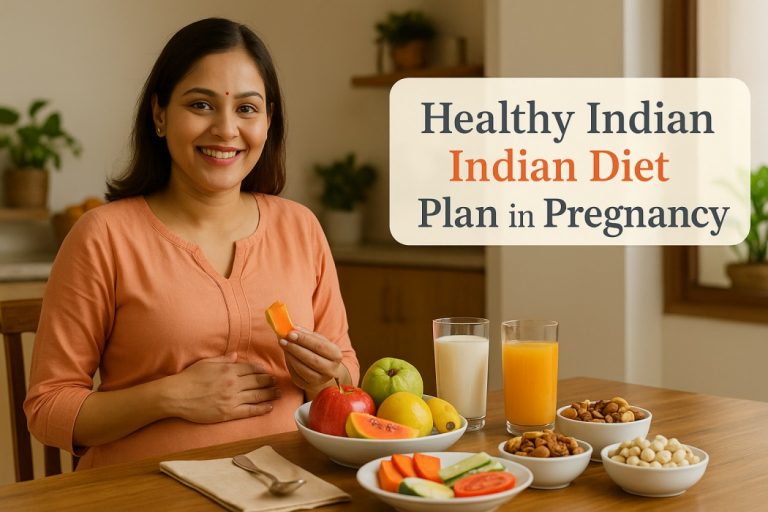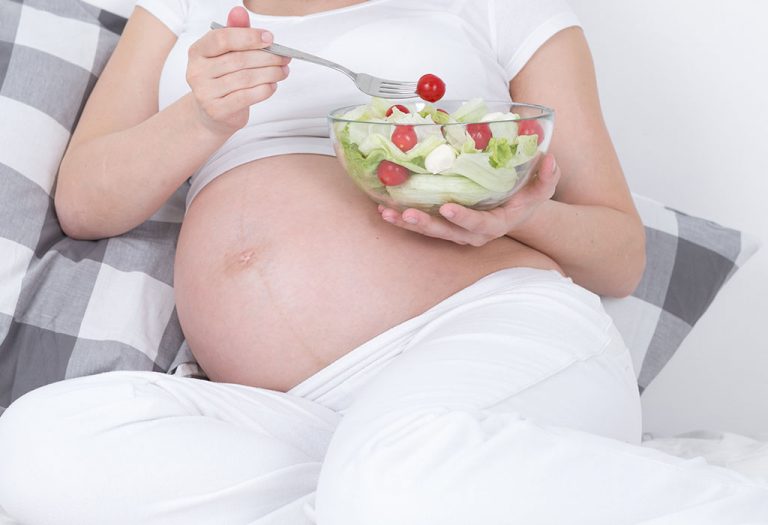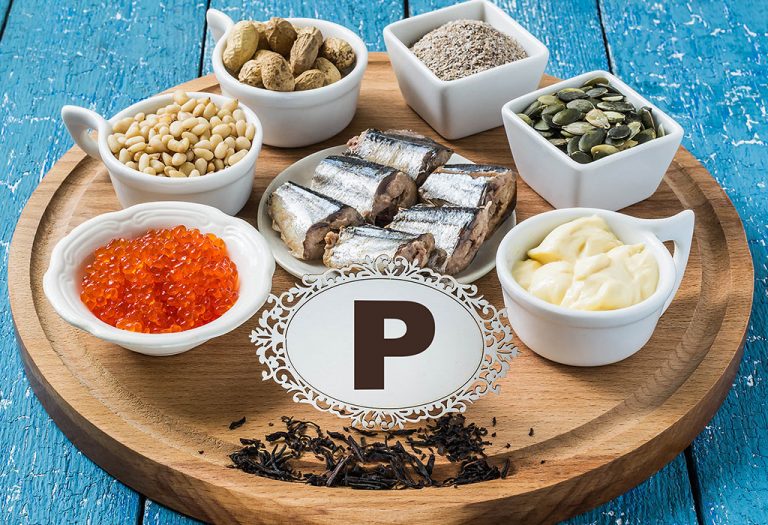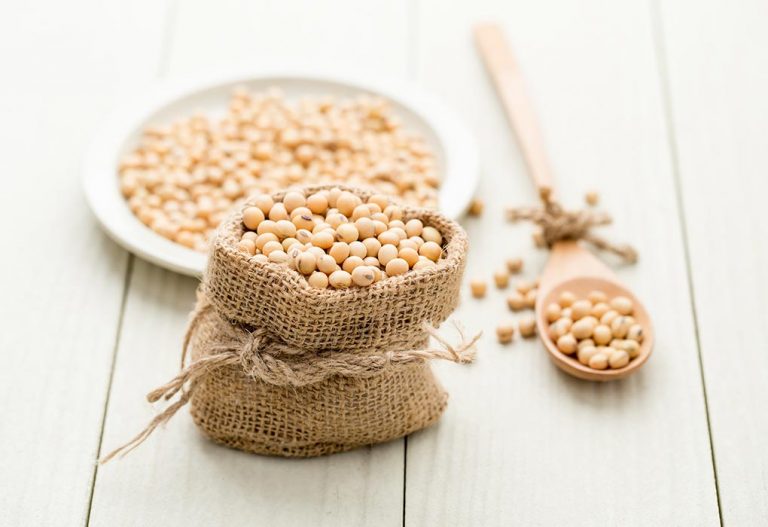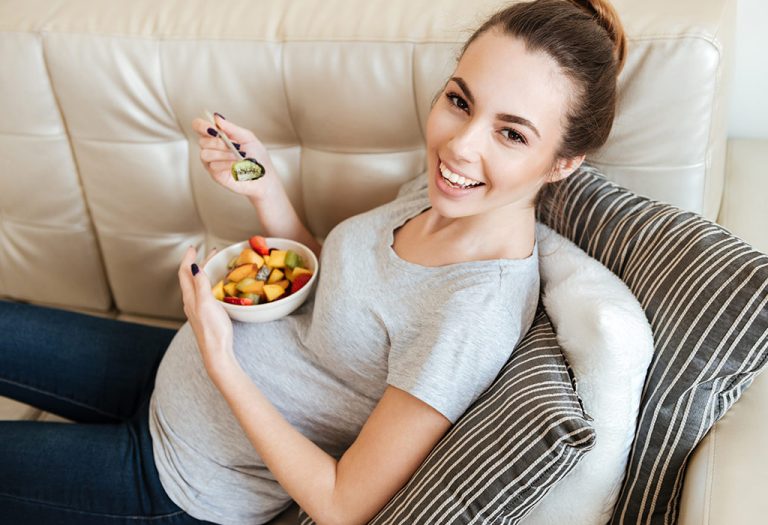Healthy Indian Diet Plan in Pregnancy: What to Eat and What to Avoid

- The Best Indian Food Sources for Pregnant Women
- What to Consider While Following an Indian Diet During Pregnancy
- An Indian Diet Plan for a Healthy Pregnancy
- Indian Pregnancy Diet Chart Trimester-wise
- Indian Foods to Eat During Pregnancy
- Indian Foods to Avoid During Pregnancy
- Vitamins Required During Pregnancy
- Is It Important to Add Supplements to the Indian Diet?
- Indian Recipes for Pregnant Women
- Tips to Keep Your Baby and Yourself Healthy
- FAQs
A healthy diet is essential during this period. A pregnant woman should not only eat to maintain her own health and fitness, but she also needs to consider the nutrients her growing child requires. Indian cuisine offers a rich variety of options for planning a pregnancy diet. Iron deficiency is a common problem among Indian women, and addressing this need during pregnancy is essential. Other vital nutrients required during this crucial phase include fats and vitamins, which are as necessary for the growing baby as they are for the mother-to-be. An Indian diet plan in pregnancy, based on these food habits, goes a long way in ensuring proper nutrition for both the mommy-to-be and the baby growing inside her.
The Best Indian Food Sources for Pregnant Women
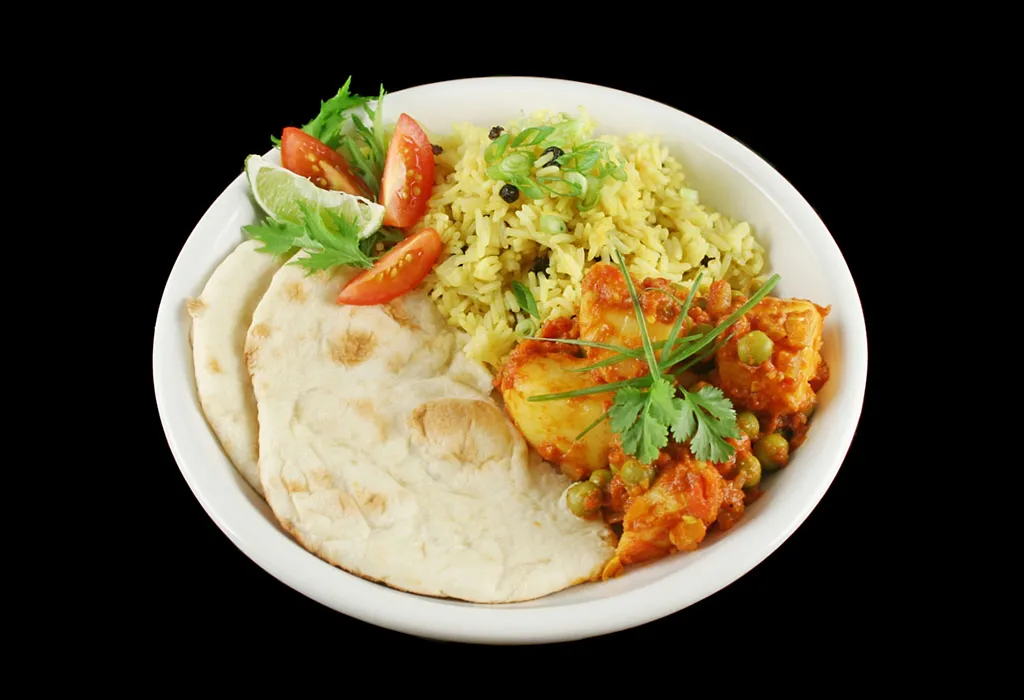
There are some common requirements to address when adopting a pregnancy diet. A balanced diet that includes folic acid, iron, vitamins, and minerals is essential for a pregnant woman to ensure a healthy and active baby. For instance, folic acid is one of the most important requirements for a pregnant woman. Iron is another important nutrient during pregnancy. Raisins, beans, spinach, cereal, poultry, fish, and lean red meat (mutton) are some of the iron-rich food items that are readily available, and an easy way to consume them is to cook them with potatoes (another north Indian staple) or oranges (1). The Vitamin C content in the latter is a catalyst in iron absorption. Here is a list of the essential foods required during pregnancy.
1. Dairy Products
Milk and milk products are highly recommended during pregnancy. You can include full-fat milk or skimmed milk, buttermilk, yoghurt, cheese, paneer, and cottage cheese in your diet. All milk products are good sources of protein, vitamins, and calcium. Cooked pasteurised paneer is a great source of calcium and can be added to various Indian dishes.
2. Pulses
Dal is an essential source of protein. Vegetarian women who are expecting can include pulses, dals, cereals, and whole grains in their diet to ensure that they meet the necessary protein intake.
3. Dry Fruits and Nuts
Dry fruits are a great source of protein. Some of the recommended nuts during pregnancy include almonds, pistachios, dates and walnuts.
4. Meat and Fish
Considered the best source of concentrated proteins, meat and fish should be a part of your diet if you are a non-vegetarian (2). Egg whites are another good source of protein. While mutton is a good source of iron, omega-3 fatty acids found in fish are known to reduce the risks of allergies in the baby and also increase the baby’s cognitive development.
5. Fresh Fruits
A common issue most pregnant women face is constipation, and optimising fibre intake is the best way to battle this problem. Fresh seasonal fruits and greens are the perfect choices to combat constipation, and they are easily available. They also provide a lot of essential vitamins and minerals. Watermelon is one of the best fruits to consume during pregnancy, as it helps alleviate morning sickness and dehydration. Mangoes, oranges and lemons provide Vitamin C, another essential nutrient. BetterHealth suggests that pregnant women consume two servings of fruit and five servings of vegetables daily (3).
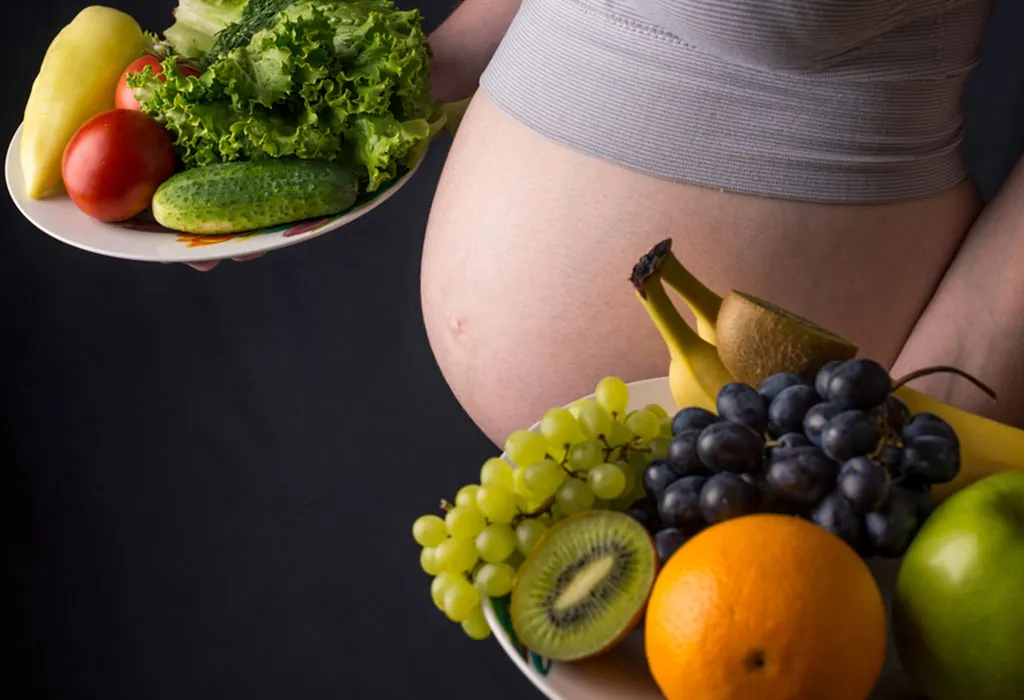
6. Vegetables
Green, leafy vegetables are recommended during pregnancy as they are a major source of many nutrients. Spinach is a rich source of iron and the all-important folic acid or Vitamin B, an essential nutrient especially during the first trimester of pregnancy. Other vegetables, such as tomatoes, are rich in Vitamin C. Peas and broccoli are among the top vegetables that should be included in a pregnancy diet. Dark green lettuce contains Vitamin K, iron, potassium and fibre, and should definitely be on the list as well. You can consume vegetables in their raw state, as well as canned, frozen, or dried forms, or enjoy vegetable juice that is 100 per cent pure and hygienically made. Incorporate dark leafy greens into your salads. Aim to fill half of your plate with fruits and vegetables at meal times (4).
7. Liquids
It’s essential to stay hydrated by drinking plenty of clean drinking water. If drinking plain water feels weird or boring to you, try infused water. Drinking water infused with fruits is not just a great way to stay hydrated, but the taste of the water will also be quite refreshing. You can also try coconut water, unsweetened lemon water with mint, or unsweetened buttermilk.
Packaged juices contain a high amount of artificial sweeteners and preservatives, and hence, should be avoided.
8. Fats
A certain amount of fat is a must in every pregnant woman’s diet. This high-energy source is important for the growth of the baby and prepares the woman’s body for childbirth. Vegetable oil has the essential unsaturated fats required by a pregnant woman and is best suited for consumption. Pregnant women should limit their consumption of butter, as it contains a high amount of saturated fats. Ghee is a good alternative.
What to Consider While Following an Indian Diet During Pregnancy
Indian or not, a diet needs to tick important boxes when it comes to pregnancy. The food sources mentioned above are part of a selection of options that provide crucial nutrients and minerals.
Pregnant women must follow a plan that provides them with all the necessary nutrients without overstraining their digestive systems. The meals need to be spread out, as opposed to the usual 3-meals-a-day routine. Big gaps between meals should be avoided. An Indian diet plan for pregnancy would include a set of dishes and food sources that ensure the right balance of nutrients and extra calories needed for a healthy child and mother.
An Indian Diet Plan for a Healthy Pregnancy
The Indian diet chart for pregnancy may seem different for different regions in India. Here’s what the ideal Indian diet plan for a mother-to-be would look like.
Pre-Breakfast Snacks – Around 7 AM
A pre-breakfast snack is crucial for pregnant mothers. It is instrumental in preventing morning sickness. The snack should be light and energising, preparing the body for the rest of the day. Typically, a glass of milk or a milkshake is recommended as a suitable accompaniment to this snack. This is because milk is an essential source of calcium, which is crucial for the development of the baby.
Almond milk is a traditional favourite, often paired with dried fruits. Almonds are a good source of protein, healthy fats, iron, and Vitamin E. Almond milk is an excellent option for those with an allergy or intolerance to dairy products.
A glass of apple or tomato juice is also a healthy option. Tomato juice, in particular, helps purify the blood and serves as a source of iron and Vitamin C.
Breakfast – Around 9 AM
Poha and rava upma are very common Indian breakfast delicacies. They also make for the perfect breakfast foods for pregnant women. Poha contains a good amount of iron and carbs, and rava upma contains minerals like iron, magnesium, and calcium (along with being a low-fat energy source). Parathas with fillings are heavy and energy-filled options, but they’ll need to be prepared using less oil than usual.
Other healthy and convenient options include whole wheat bread, which provides a lot of fibre along with essential nutrients, and oats, which are a valuable source of iron. Sandwiches with veggies (which are rich sources of iron and vitamins) are a convenient breakfast food. Fruits are another source of vitamins and fibre.
Mid-Morning Snacks – 11 AM to Noon
A comprehensive Indian pregnancy diet chart would include the all-important mid-morning snack too. Soups are suggested for this meal as they are light on the stomach and packed with nutrients. Options include chicken, tomato, spinach, carrots and beetroots – all of these are readily available in an Indian kitchen.
Lunch – 1.30 PM
Dry chapatis or parathas with curd are standard recommendations for a lunchtime meal during pregnancy. Rice with chicken curry and raita is another good option for lunch. Chicken is an excellent source of lean protein and niacin (vitamin B-3).
Khichdi is a healthy and light option for lunch, just like another Indian favourite, curd rice. The main benefits that rice dishes offer include a boost of instant energy, the prevention of urinogenital infections due to the diuretic properties of rice, and an increase in the mother’s immunity. Traditional wheat bread, like rotis and parathas, is a good source of fibre and carbs.
Evening Snacks
Simple, light snacks can be had anytime in between lunch and dinner. Pre-dinner evening snacks are essential for pregnant ladies. Some of the popular recommendations include various halwas, idlis, smoothies, roasted peanuts, lightly fried cutlets and dry fruits.
Dinner – 8 PM
Along with lunch, this is another heavy meal in the pregnancy diet chart for women. Dal is a nutritious traditional preparation and should be a part of dinner along with rice or dry rotis, which provide the body with necessary carbs. Khichdi, curd, parathas and curries are also a good source of nutrition. Yoghurt and buttermilk aid digestion.
It’s best to end the day with a glass of milk and a couple of dates before sleeping. Milk has melatonin, which helps in ensuring proper sleep, and dates have properties that stimulate uterine contractions.
The National Institute of Nutrition suggests the following in a diet plan for pregnant women in India (5) (6) (7) (8).
| Timings | North India | South India |
| Early Morning 6:30 AM |
Milk (200 ml) | Milk (200 ml) |
| Breakfast 08:00 AM |
3 Parantha/3 Roti (75g) or Daliya (75g + 15g pulses, 1.5 cups), Vegetable curry (100g, 1/2 cup), one boiled egg or paneer (30g) | 2 Dosas (cereal+pulses) or 3 idlis, 1/2 cup vegetable chutney, 1 Boiled egg or omelette (optional) |
| Mid Morning 10:30 AM |
Seasonal fruit (100 g) | Seasonal fruit (100 g) |
| Lunch 1:00 PM |
2 cups Rice (100g) or 4 Roti (100g), Dal, Green leafy Vegetable curry (75g, 1/2 cup), Curd (100ml, 1/2 cup), Salad (50g), Chicken or Meat (30g, 1/2 cup, optional) | 2 cups Rice (100 g) or 3 Roti (100 g), Chicken or Meat (30 g, 1/2 cup), Green leafy vegetable curry (50g, 1/2 cup), Salad (50g), Curd (1/2 cup, 100 ml) |
| Evening Snacks 4:00 PM |
1 seasonal fruit (Banana/orange/guava 100 g) and Nuts (Peanuts or Til 30g) | 1 seasonal fruit (Banana/orange/guava 100 g) and Nuts (Peanuts or Til 30g) |
| Dinner 8:00 PM |
2 cups Rice (100g) or 4 Roti (100g), Chickpea Dal (15g, 1/4 cup), Green leafy vegetable (75g, 1/2 cup), Vegetables (50g, 1/2 cup), Curd (1/2 cup, 100 ml) | 2 cups Rice (100 g) or 3 Roti (100 g), Tur Dal or Green Gram (15g, 1/4 cup), Green leafy vegetable (75g, 1/2 cup), Vegetables (50g, 1/2 cup), Curd (1/2 cup, 100 ml) |
| Bedtime 10:00 PM |
Milk (100 ml) | Milk (100 ml) |
| Timings | East India | West India |
| Early Morning 6:30 AM |
Milk (200 ml) | Milk (200 ml) |
| Breakfast
08:00 AM |
2 Parantha (75g) with Vegetable curry (50g, 1/4 cup), pulses (15g) + Green Leafy Vegetable (50g, 1/2 cup), 1 boiled egg or paneer (30g) | Poha (75g, 1 cup) or Parantha and Green Leafy vegetable Dal (15g, 1/2 cup), Veg curry (100g, 1/2 cup), 1 Boiled egg or omelette (optional) |
| Mid morning 10:30 AM |
Seasonal fruit (100 g) | Seasonal fruit (100 g) |
| Lunch 1:00 PM |
2 cups Rice (100g) or 4 Roti (100g), Fish curry or pulses (30g, 1/2 cup), Green leafy Vegetable (50g, 1/4 cup), Kalmi Saag (50g, 1/4 cup), Vegetable curry (50g, 1/4 cup) Curd (100ml, 1/2 cup), Salad (50g) | 2 cups Rice (100 g) or 3 Roti (bhakri), Fish or Meat (30 g, 1/2 cup), Green leafy vegetable curry (50g, 1/2 cup), Salad (50g), Curd (1/2 cup, 100 ml) |
| Evening Snacks 4:00 PM |
1 seasonal fruit (Banana/orange/guava 100 g) and Nuts (Peanuts or Til 30g) | 1 seasonal fruit (Banana/orange/guava 100 g) and Nuts (Peanuts or Til 30g) |
| Dinner 8:00 PM |
2 cups Rice (100g) or 4 Roti (100g), Lentil (30g, 1/2 cup), Green leafy vegetable (50g, 1/4 cup), Vegetable curry (100g, 1/2 cup), Curd (1/2 cup, 100 ml) | 2 cups Rice (100 g) or 3 Bajri Roti (100 g), Lentil (15g, 1/4 cup), Green leafy vegetable (50g, 1/4 cup), Vegetable curry (100g, 1/2 cup), Curd (1/2 cup, 100 ml) |
| Bedtime 10:00 PM |
Milk (100 ml) | Milk (100 ml) |
Indian Pregnancy Diet Chart Trimester-wise
Here is the Indian meal plan for pregnancy. Keep in mind that this is a general guideline. Your doctor or dietitian may adapt it for gestational diabetes, thyroid issues, anaemia, or other medical needs.
First Trimester (Weeks 1–12)
This stage is about building the foundation. Folic acid, iron, and light, easy-to-digest meals are key since nausea and morning sickness are common.
As per the first trimester diet chart, focus on foods that provide folic acid, such as spinach, lentils, and fresh oranges, to support your baby’s early development. For steady energy, include whole grains like rice and wheat in your meals. Don’t forget dairy products like milk and yoghurt, which supply much-needed calcium for your bones and your baby’s growth.
Second Trimester (Weeks 13–27)
This is the growth stage where your baby’s organs and bones develop rapidly. Your doctor may add more protein, calcium, iron, and fibre to your Indian second-trimester diet chart to support the increased blood volume and the baby’s needs.
Add protein-rich options, such as paneer, nuts, and various types of lentils, to your diet to meet your body’s increased needs. Make sure to include iron-rich foods such as leafy greens, dates, and jaggery to prevent anaemia. Pair these with vitamin C-rich fruits, such as citrus and berries, which help your body absorb iron more effectively.
Key Nutrients to Focus On:
- Calcium: paneer, curd, ragi, sesame seeds
- Protein: dals, beans, eggs, lean chicken, paneer
- Iron & Folate: beetroot, spinach, rajma, chana, citrus fruits for better absorption
Third Trimester (Weeks 28–40)
This trimester is about supporting rapid growth and preparing your body for delivery. Your doctor will add fibre, hydration, and lighter meals to your third-trimester diet chart since heartburn and indigestion are common now. Focus on omega-3 sources like flaxseeds, walnuts, and fish if you eat non-vegetarian food. Strengthen your bones with calcium-rich choices such as milk, curd, and sesame seeds. Don’t forget vitamin D from fortified dairy products and safe exposure to sunlight to support both you and your baby.
Key Nutrients to Focus On:
- Omega-3s: walnuts, flaxseeds, chia, low-mercury fish (if non-veg)
- Magnesium & Fibre: bananas, oats, whole grains, beans (to ease leg cramps & constipation)
- Hydration: 8–10 glasses of water, coconut water, soups
Indian Foods to Eat During Pregnancy
Here are nutrient-rich Indian foods that support both you and your baby:
1. Dal & Legumes (Moong dal, Masoor dal, Chana, Rajma, etc.)
These are excellent sources of plant protein, fibre, iron, folate and complex carbs. They help in maintaining haemoglobin and sustaining energy.
2. Leafy Greens (Palak, methi, spinach, fenugreek leaves, amaranth, etc.)
Dark green leaves supply folate, iron, calcium, vitamins A & C, which are crucial for foetal neural development and your blood volume.
3. Whole Grains (Brown rice, millets, whole wheat, ragi, jowar, bajra)
These give sustained energy, fibre to prevent constipation, and micronutrients that refined grains often lack.
4. Low-fat Dairy (Milk, yoghurt, paneer, buttermilk/chaas)
Rich in calcium, protein, vitamin B12, and probiotics, dairy helps bone health and digestion (especially yoghurt/curd).
5. Well-cooked Eggs
A great source of high-quality protein, choline (for brain development), B vitamins, and healthy fats when consumed thoroughly cooked.
6. Lean Meats / Poultry (chicken, turkey in moderation)
Offers easily absorbable iron, zinc, and protein. Ensure it’s well-cooked to avoid infections.
7. Safe Fish (low-mercury varieties like salmon, sardine, rohu in moderation)
These provide omega-3 DHA, which supports the baby’s brain and eye development (choose low-mercury fish)
8. Nuts & Seeds (almonds, walnuts, chia seeds, flaxseeds, sesame seeds in moderation)
They contribute healthy fats, magnesium, omega-3s, micronutrients and a little protein.
9. Fruits (papaya when fully ripe, mango in moderation, banana, apple, berries, oranges, pomegranate)
Fruits offer natural sugars, fibre, vitamins and antioxidants. Fully ripe papaya may be safer (contrasting unripe).
10. Vegetables (pumpkin, carrot, sweet potato, capsicum, beans, tomato, cauliflower, beetroot, squash)
A colourful variety ensures diverse vitamins (A, C, K) and minerals.
11. Ghee (in moderation)
Traditionally, small amounts of fat-soluble vitamins support their absorption and provide energy.
12. Whole Pulses Sprouts (cooked sprouts)
When properly cooked, sprouts (like moong) increase protein, fibre, enzymes, and micronutrients.
13. Citrus & Vitamin C Rich Foods (lemon, amla, guava, citrus fruits)
Helps in enhancing iron absorption from plant sources and supports immunity.
Indian Foods to Avoid During Pregnancy
While many Indian foods are nutritious, some carry risks or should be limited. It can be challenging to keep track of all the ingredients that go into each dish. However, during pregnancy, some foods should be strictly avoided (9).
1. Raw or unripe papaya
The list of ‘what not to eat during pregnancy’ begins with papaya, which contains certain compounds that are harmful to pregnant women. Raw papaya contains latex and enzymes that may trigger uterine contractions. Semi-ripe papaya is especially risky.
Note: Some myths claim that mango, papaya, or pineapple always cause miscarriage. However, when ripe and eaten in moderation, they are typically safe; avoid the unripe or semi-ripe forms.
2. High-mercury fish (shark, swordfish, king mackerel, tilefish, tuna in excess)
Fish, including shark, swordfish, orange roughy, king mackerel, and marlin, contain high levels of mercury that can damage the fetal nervous system. Pregnant women must avoid or limit these fish (10).
3. Undercooked or raw meat, fish, or eggs
Raw eggs and raw seafood, like raw oysters or sushi, should be avoided due to the dangers of salmonella, an infection that affects the intestinal tract and causes diarrhoea, fever, and abdominal cramping. They may also harbour Salmonella, Listeria, Toxoplasma, and other pathogens. Salmonella is a foodborne illness that could cause vomiting, diarrhoea, nausea, and stomach cramps in pregnant women and also uterine sepsis that could affect unborn babies (11). Always cook thoroughly.
4. Organ meats (liver, kidney) in excess
They are high in preformed vitamin A, which in large amounts can cause birth defects.
5. Raw sprouts (alfalfa, mung bean sprouts, clover, radish sprouts)
The humid environment promotes bacterial growth; avoid raw sprouts.
6. Excess jaggery + sesame seed mixtures (especially in some traditional customs)
In some traditions, excess sesame-jaggery is discouraged; moderation is safer.
7. Excessive caffeine & sugary drinks
Too much caffeine can reduce blood flow to the baby; sugary drinks may increase the risk of gestational diabetes.
8. Street foods/uncooked salads or exposed foods with questionable hygiene
Risk of contamination with pathogens, foodborne illness.
9. Unpasteurized or raw milk, soft cheeses
They may harbour Listeria or other bacteria. Use pasteurised dairy.
10. Excessively spicy, high-salt, deep-fried or oily snacks
These may provoke heartburn, hypertension, indigestion, and weight gain.
11. Excessive sugar/sweets/processed desserts
It can contribute to gestational diabetes, excess weight gain, and poor micronutrient balance.
12. Excess vitamin A or retinol supplements/foods with very high vitamin A
Although very rare, overconsumption of preformed vitamin A is dangerous (mostly applies to supplements or exotic foods).
13. Unregulated use of spices, including poppy seeds, nutmeg, peppermint, and rosemary
Poppy seed tea, excess use of nutmeg and peppermint, and rosemary should be avoided as their unregulated use could lead to uterine contractions and increase the risk of miscarriage (12).
There are more Indian foods to avoid during early pregnancy. Indian cuisines use sesame seeds, fennel seeds and fenugreek (methi), which can cause uterine contractions because of the presence of phytoestrogens. Monosodium Glutamate, commonly known as Ajinomoto and used in Indo-Chinese dishes, is harmful too.
Vitamins Required During Pregnancy
1) Important Vitamins Required During Pregnancy
- Vitamin B or folic acid is one of the most crucial vitamins for the well-being of a pregnant woman. It is an important requirement during the early stages of pregnancy and also prior to conception. A deficiency of Vitamin B during pregnancy leads to neural tube defects in the baby.
- Vitamin D is the main facilitator of calcium absorption. A deficiency may lead to complications with the skeletal system and affect the bone health of both the mother and the child.
- Ascorbic acid, or Vitamin C, is another essential nutrient that must be part of a woman’s pregnancy diet. Vitamin C helps in absorbing iron, an essential mineral required for expectant mothers. A deficiency can hamper the growth and development of the foetus’s brain.
2) Food Sources to Get the Required Vitamins
- Foods rich in folic acid or Vitamin B include green, leafy vegetables and liver. Broccoli, lentils, peas, cauliflower and beetroot are essential sources of this nutrient.
- Mushrooms, dairy products, and eggs are excellent sources of Vitamin D. Taking regular walks outside while the weather is pleasantly sunny is another excellent way to soak up some Vitamin D.
- Capsicum, spinach, citrus fruits and peas are a great source of Vitamin C.
Is It Important to Add Supplements to the Indian Diet?
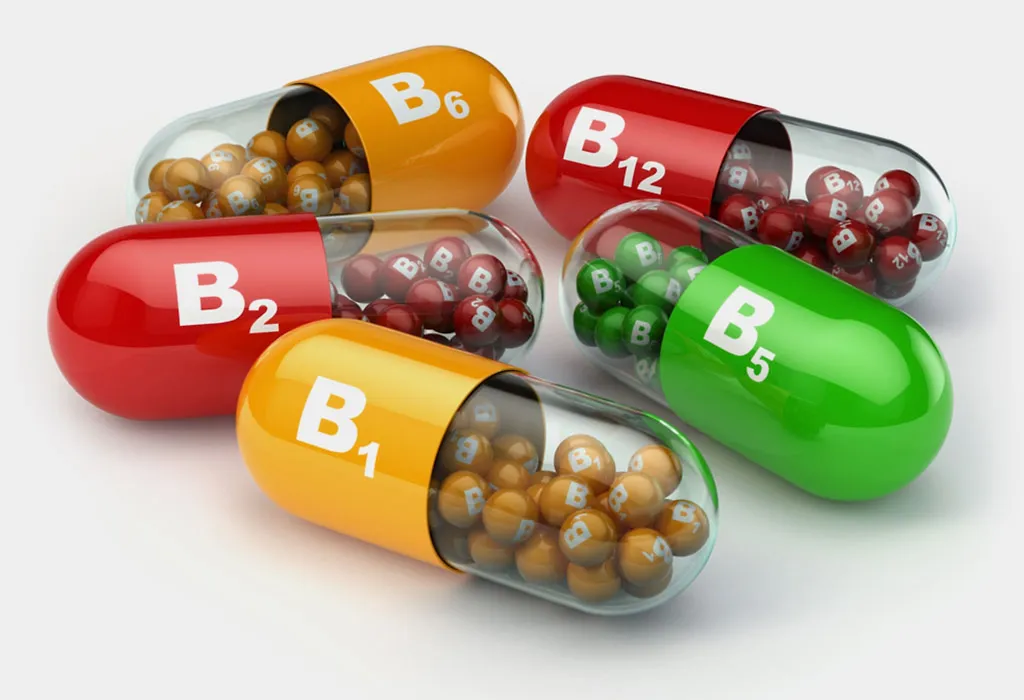
During pregnancy, the body enters an overdrive state, ensuring that both the mother and the baby are well-nourished. There can be scenarios where certain deficiencies occur, and the mother-to-be will require supplements to compensate for the deficit. The most significant deficiencies that can happen when following an Indian diet are those of iron and protein. Vitamin deficiencies are also another common occurrence.
The American Academy of Pediatrics recommends the daily intake of 75 to 100 grams of protein, around 1000 milligrams of calcium, 27 milligrams of iron, 600 to 800 micrograms (.6 to .8 milligrams) of folic acid, and at least 85 milligrams of vitamin C (13).
- Prenatal vitamin supplements should include vitamins B12, C, and D, along with thiamine, riboflavin, niacin, and calcium.
- A medical practitioner can also recommend specific folic acid (Vitamin B) supplements to reduce the risks of neural tube defects.
- Probiotics are also recommended to aid digestion.
- Iron supplements are a standard prescription for pregnant women who are anaemic. The increase in blood levels indicates that the body requires more iron. Iron, folate, and calcium supplements are recommended to start from 14-16 weeks of pregnancy and continue till lactation (14).
- Vitamin C is sometimes recommended as a complementary supplement, as it helps in the absorption of iron.
- Never self-medicate when it comes to supplements because it might result in imbalances. Always consult a specialist to identify deficiencies and get prescriptions for the required supplements.
Indian Recipes for Pregnant Women
If you are looking for simple recipes to include in the Indian meal plan for pregnancy, here are two simple and highly nutritious recipes for pregnant women.
1. Moong Dal Khichdi With Veggies
If you are looking for a light and nutritious indian breakfast for pregnant women, Moong Dal Khichdi with veggies is just the right dish to serve on the plate.
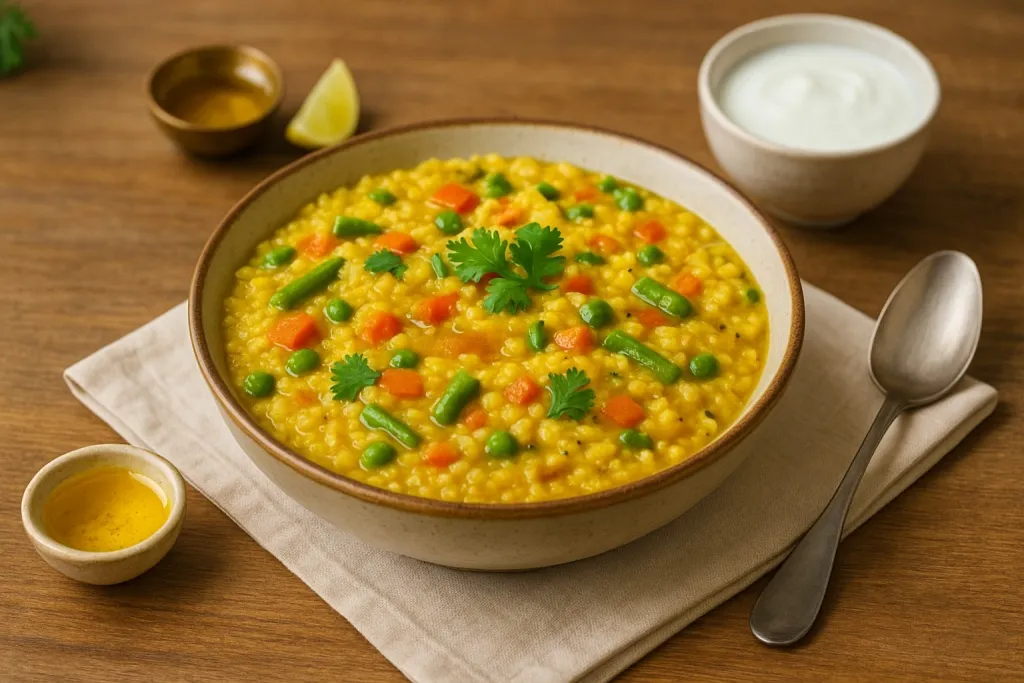
Image Source : AI Generated Image
Ingredients:
- ½ cup moong dal (yellow split moong)
- ¼ cup rice; broken or brown
- 1 small carrot (diced)
- ½ cup peas, beans, or mixed vegetables
- 1 small tomato (chopped)
- ½ tsp cumin seeds
- Pinch of turmeric, salt to taste
- 1 tbsp ghee or oil
- Fresh coriander leaves
- Water
How to Make:
- Rinse moong dal and rice together until the water runs clear.
- In a pressure cooker or pot, heat ghee/oil, add cumin seeds and let them crackle.
- Add chopped tomato, vegetables, turmeric, and salt. Sauté all for some three to four minutes.
- Add the dal-rice mix and water (about 2 to 3 cups), mix well.
- Pressure cook (2 whistles) or simmer until cooked and soft.
- Garnish with fresh coriander. Serve warm with yoghurt or buttermilk.
2. Spinach (Palak) Paneer With Millet Roti
A comforting and nutrient-packed meal, Spinach Paneer with Millet Roti is perfect for expectant moms who want a balance of taste and nutrition. Loaded with iron, calcium, and protein, this wholesome Indian lunch keeps you energised and supports healthy pregnancy growth.
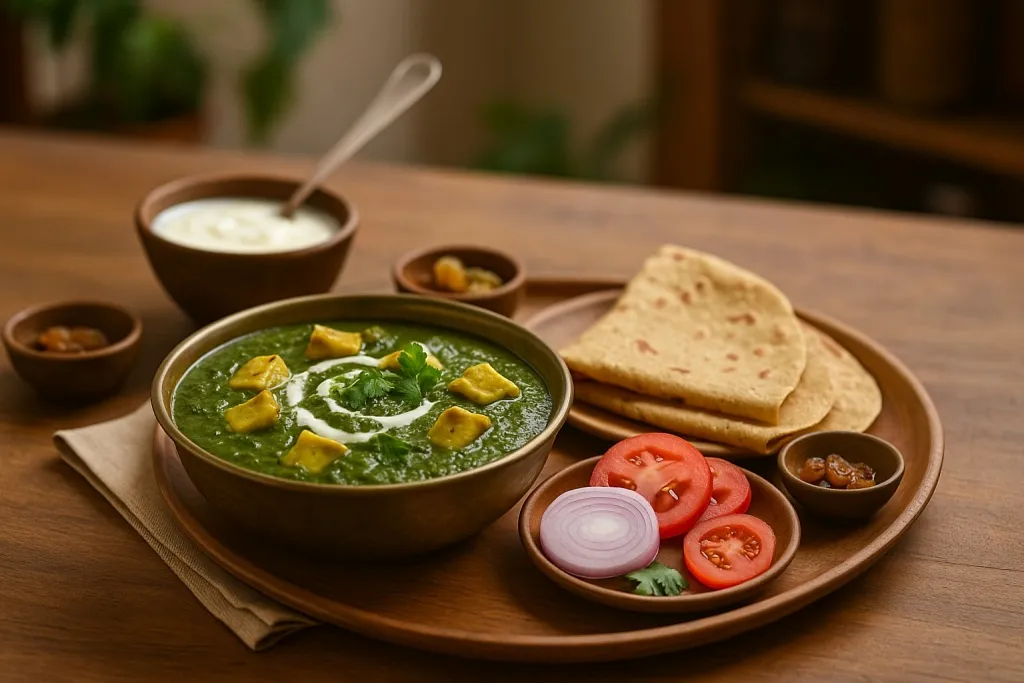
Image Source : AI Generated Image
Ingredients:
- 200 g paneer (cubed)
- 1 bunch spinach (washed, chopped)
- 1 small onion (finely chopped)
- 1 small tomato (pureed)
- 1 tsp ginger-garlic paste
- 1 tsp cumin seeds
- ½ tsp garam masala, salt, red chilli (optional)
- 1 tbsp oil or ghee
- Millet flour or whole wheat flour for rotis
How to Make:
- Blanch spinach in hot water, drain and blend into a smooth paste.
- In a pan, heat oil/ghee, add cumin seeds, and onion. Sauté all till it turns translucent.
- Add ginger-garlic paste, tomato puree; cook until oil separates.
- Stir in spinach paste, salt, and garam masala. Let it simmer for 3 to 4 minutes.
- Add paneer cubes, gently mix and cook for another 2 minutes.
- Serve hot with millet or whole wheat rotis (chapati) and a side of yoghurt.
Tips to Keep Your Baby and Yourself Healthy
Here are some more pointers for pregnant women to ensure the health of both themselves and their babies growing inside them. Add more healthy options to the traditional Indian diet and make sure you avoid certain foods and habits. Remember that every bite counts when you are pregnant since your baby’s nutrition depends on you.
1) Quit smoking.
Smoking can cause your baby to be born prematurely and underweight, and put him at the risk of many other serious complications, including SIDS (Sudden Infant Death Syndrome).
2) Stay away from alcohol.
Alcohol consumption can cause many defects in the baby, especially with cell development. Remember that the alcohol that courses through a mother’s blood can enter the baby’s system.
3) Avoid aerated drinks.
Aerated drinks contain no nutrients and have too much sugar, which poses more harm to the baby than good.
4) Avoid excessive eating.
Eating for two doesn’t refer to the amount of food, but rather the quality and balance. Becoming overweight by gaining more than what is expected during pregnancy can cause preterm births and gestational diabetes. Ideally, the average woman requires not more than 300 additional calories beyond the RDA and healthy calories per day when she’s pregnant (16). An increase of 11 to 15 kgs while pregnant is considered healthy in the case of a woman who was of average weight before pregnancy.
5) Avoid cold cuts of meat.
Altogether avoid uncooked meat, such as sushi, as it may contain parasites, including tapeworms. Uncooked meat may also contain traces of the Salmonella bacteria, which can cause food poisoning.
6) Consume caffeinated beverages in moderation.
Tea and coffee should be consumed in moderation. Certain studies attribute higher risks of miscarriage to excess caffeine consumption. Decaffeinated or pregnancy-safe herbal teas are suitable options for women to have during pregnancy.
7) Choose your fish wisely.
Shrimp and canned light tuna are very good seafood options as they are low in mercury. Omega-3 fatty acids are always beneficial, so make sure to pop in some fish liver oil capsules daily. A dosage of 300 mg per day is recommended.
8) Focus on protein-rich foods.
Soy products like tofu contain good protein and folic acid. While proteins help the baby grow, folic acid helps keep birth defects at bay.
9) Stay away from weight-loss plans.
Avoid modern weight-loss diets like low-carb plans during your pregnancy. Stick to tried-and-tested methods of nutrition, and always consult an expert if you’re trying out something new. Ideally, a pregnant woman shouldn’t be looking to lose weight unless specifically instructed by her doctor.
10) Ensure high standards of hygiene.
Stay away from potential bacterial hazards like soft cheese and leftovers. The fridge should not be set at more than 4 degrees Celsius.
11) Indulge occasionally.
Save your favourite junk food for a special occasion. Foods that are loaded with sugar or have a high salt content are known to create a similar preference in the baby, who gets accustomed to it.
12) Increase calcium intake.
Calcium is essential for the baby’s development in the last two trimesters. It also benefits you by reducing the risk of developing osteoporosis in the long run.

FAQs
Q1. Is it safe to eat papaya or mango during pregnancy?
Ripe mango and fully ripe papaya in moderate amounts are generally safe and nutritious (rich in vitamins and fibre). The concern arises mostly with unripe papaya, which contains latex and may stimulate contractions. Always choose fully ripe fruit and consume it in moderation.
Q2. How many meals or snacks should I eat during pregnancy?
During pregnancy, 5–6 smaller meals and snacks spaced out (every 2–3 hours) often help. If nausea is severe, start with bland, light items (such as toast, crackers, or bananas) and gradually add protein and greens as tolerated. Focus on hydration and nutrient density.
Q3. How do I up the iron absorption through an Indian diet during pregnancy?
Iron is crucial in preventing anaemia and supporting the baby’s growth. To boost absorption: pair iron foods (dal, greens) with vitamin C sources (lemon, citrus, guava); avoid tea/coffee with meals (they inhibit absorption); include moderate animal or plant-derived iron sources.
Q4. Can I follow a vegetarian or vegan Indian pregnancy diet safely?
Yes, why not, but with planning. Protein sources like dal, beans, paneer, tofu, legumes, and nuts, B12 supplementation (if vegan), iron, calcium, and omega-3 fatty acids (like flaxseed, chia, algae oil) can replace animal foods in a vegan or vegetarian diet (16). Work with a dietitian to monitor key nutrients.
Q5. What about coffee, tea, or other caffeinated drinks?
Limit caffeine to about 200 mg per day (roughly 1–2 cups of coffee) or less, because high caffeine may affect fetal blood flow and risk of low birth weight. Prefer decaf, pregnancy-safe herbal teas, and plenty of water.
Q6. Are “cooling” and “hot” foods (in Indian traditional belief) relevant in pregnancy?
These are traditional food classifications (Gujarati, Ayurvedic), but they shouldn’t override scientific nutrition principles. The body’s needs are best met through a balanced Indian diet for pregnancy, good hygiene, and adequate nutrition. Don’t avoid nutritious “hot” foods altogether if your body tolerates them and your doctor approves.
Q7. How to handle cravings or aversions, especially for street food?
Cravings can be managed by healthier substitutions (e.g., baked snacks, roasted nuts) and allowing your body to have small, safer portions occasionally (only from hygienic sources). For aversions, temporarily replace them with alternate, nutrient-rich foods; as pregnancy progresses, many aversions tend to ease.
A balanced diet paves the way for a healthy pregnancy and ensures the well-being of both the mother and the child. Staying conscious of what you eat not only helps you gain weight prudently but also helps with postpartum weight loss.
Also Read:
Simple Pregnancy Diet Chart
Foods to Eat during Pregnancy
Vegetarian, Vegan Diet Plan for Pregnant Women
Foods to Eat for Gestational Diabetes during Pregnancy
Was This Article Helpful?
Parenting is a huge responsibility, for you as a caregiver, but also for us as a parenting content platform. We understand that and take our responsibility of creating credible content seriously. FirstCry Parenting articles are written and published only after extensive research using factually sound references to deliver quality content that is accurate, validated by experts, and completely reliable. To understand how we go about creating content that is credible, read our editorial policy here.
1. Mayo Clinic – Pregnancy diet: Focus on these essential nutrients
2. NHS – Have a healthy diet in pregnancy
3. BetterHealth Channel – Pregnancy and diet
4. ACOG – Nutrition During Pregnancy
5. NIN – Diet Chart for Pregnant Women in South India
6. NIN – Diet Chart for Pregnant Women in North India
7. NIN – Diet Chart for Pregnant Women in East India
8. NIN – Diet Chart for Pregnant Women in West India
9. NHS – Foods to avoid in pregnancy
10. UNICEF – What to eat when pregnant
11. UC Davis Health – 10 foods to eat and avoid during pregnancy
12. MotherToBaby – Spicing Up Your Life during Pregnancy and Breastfeeding: Are Spices and Herbs Ok?
13. American Pregnancy Association – Pregnancy Nutrition
14. NIN – Dietary Guidelines for Indians – A Manual







